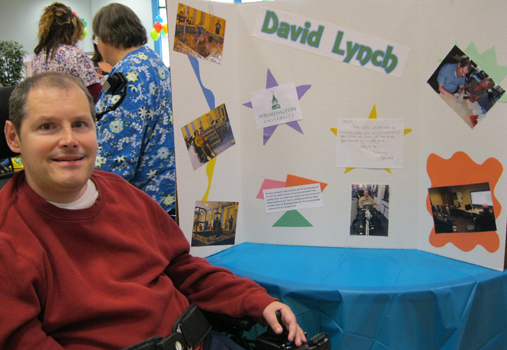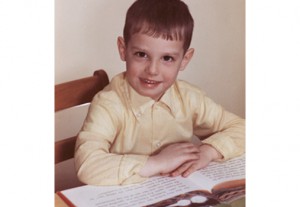Posted on July 17, 2015

“I really feel sorry for you that you have a disability and have to use a wheelchair.”
The comment came from a man I’d just met in the community.
I was surprised to hear it because I’d just got done explaining my story to him in a very positive light.
He had wanted to know how I live with my disability. When I receive a question like this from someone, I provide an overview of my situation, as I proceeded to do with him. I tell the story this way. I was born a healthy child, and at age six, I was diagnosed with muscular dystrophy.
As time went on I moved slower than the other kids, lost the ability to climb steps, and in my early 20s started using a scooter to go long distances. By the time I turned 25, I began utilizing a motorized chair on a full-time basis.
At this point in my overview, I provide insight about muscular dystrophy; that it is a progressive disease in which my motor, cardiac, and pulmonary functions will continue to decrease over time. But, I also explain that muscular dystrophy has not slowed me down in living a full and active life.
Examples? I’ve traveled with family to many places, I’ve been employed at financial institutions in the community for many years, I’ve graduated from college, I’ve served as a deacon in my church, and recently I returned to school with scholarship money.
When I finish telling my story, I remind the listener that I have a very blessed life and have much to contribute to the world around me.
One definition of “sorry” is to feel sympathy for another person’s misfortune. Based on this definition, when people tell me they feel sorry that I have a disability or use a wheelchair they are indicating to me that my life is full of misfortune. My life is far from a misfortune.
I firmly believe that God has a purpose for each one of us in whatever situation we face in life. Persons with disabilities are not looking for people to feel sorry for them and have pity on them. We appreciate people who have compassion and want to assist us through our journey in life.. However, showing pity does not help us feel appreciated and fully part of the world around us. We want people to see us for our ability to overcome our disabilities with courage, grace and dignity.
Come visit the Mary Campbell Center in Wilmington, where I live, and you will have a full appreciation of the contributions persons with disabilities make in the community, every day.
Earlier this year, the Mary Campbell Center hosted a Showcase of Achievements event, where its residents shared their many accomplishments over the past couple of years. Residents work in the community, volunteer, further their education, and prepare for the Special Olympics.
The residents also set physical development goals to better themselves. They work with staff to develop and accomplish these goals, and demonstrate that each one of us has the ability to overcome limitations.
My vision is that people in our community welcome and appreciate the daily contributions made by persons with disabilities; that they even become inspired by those contributions. My vision also includes this: that “I am sorry” and pity shown to persons with disabilities will no longer have a place in our communities.



